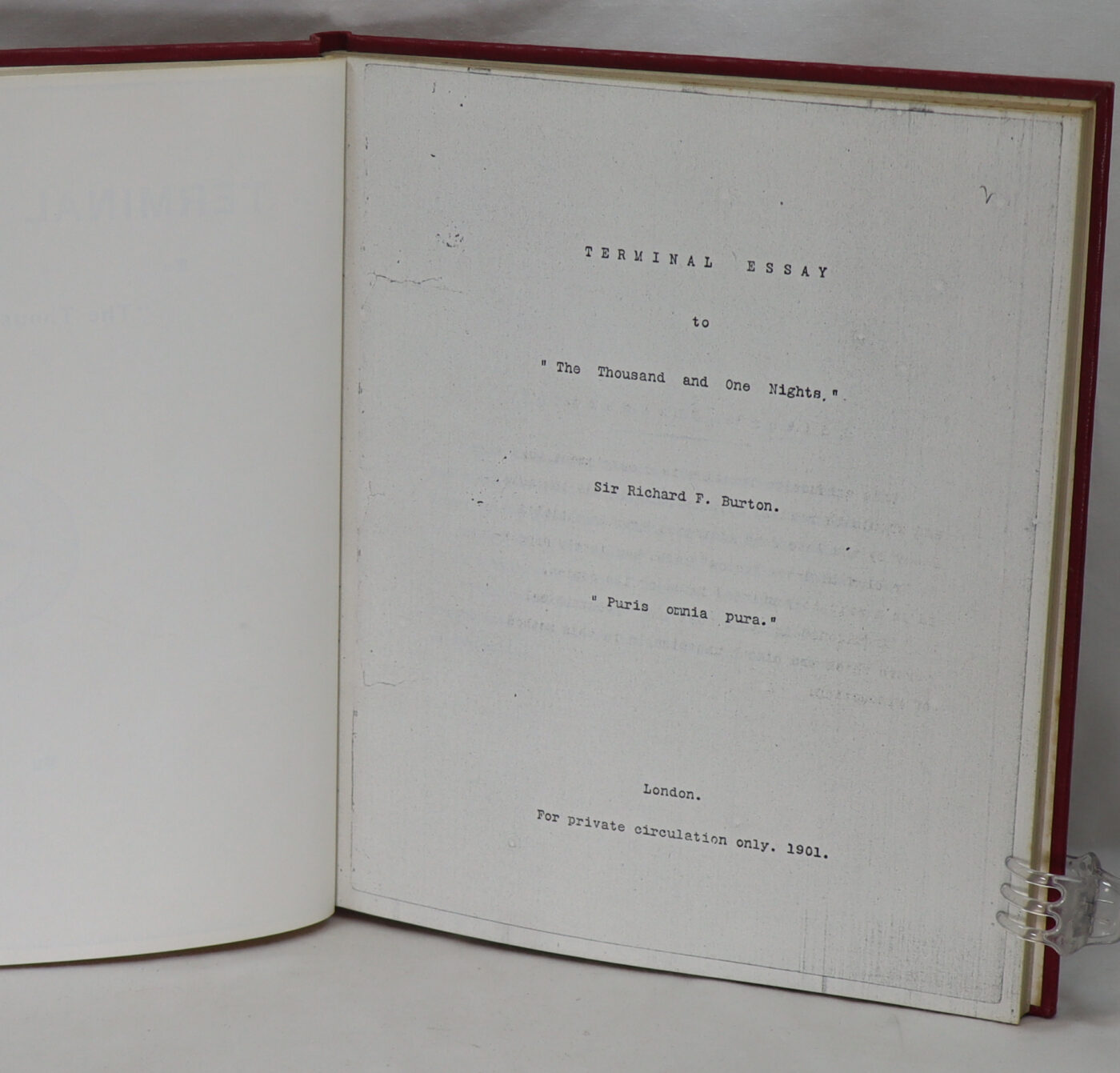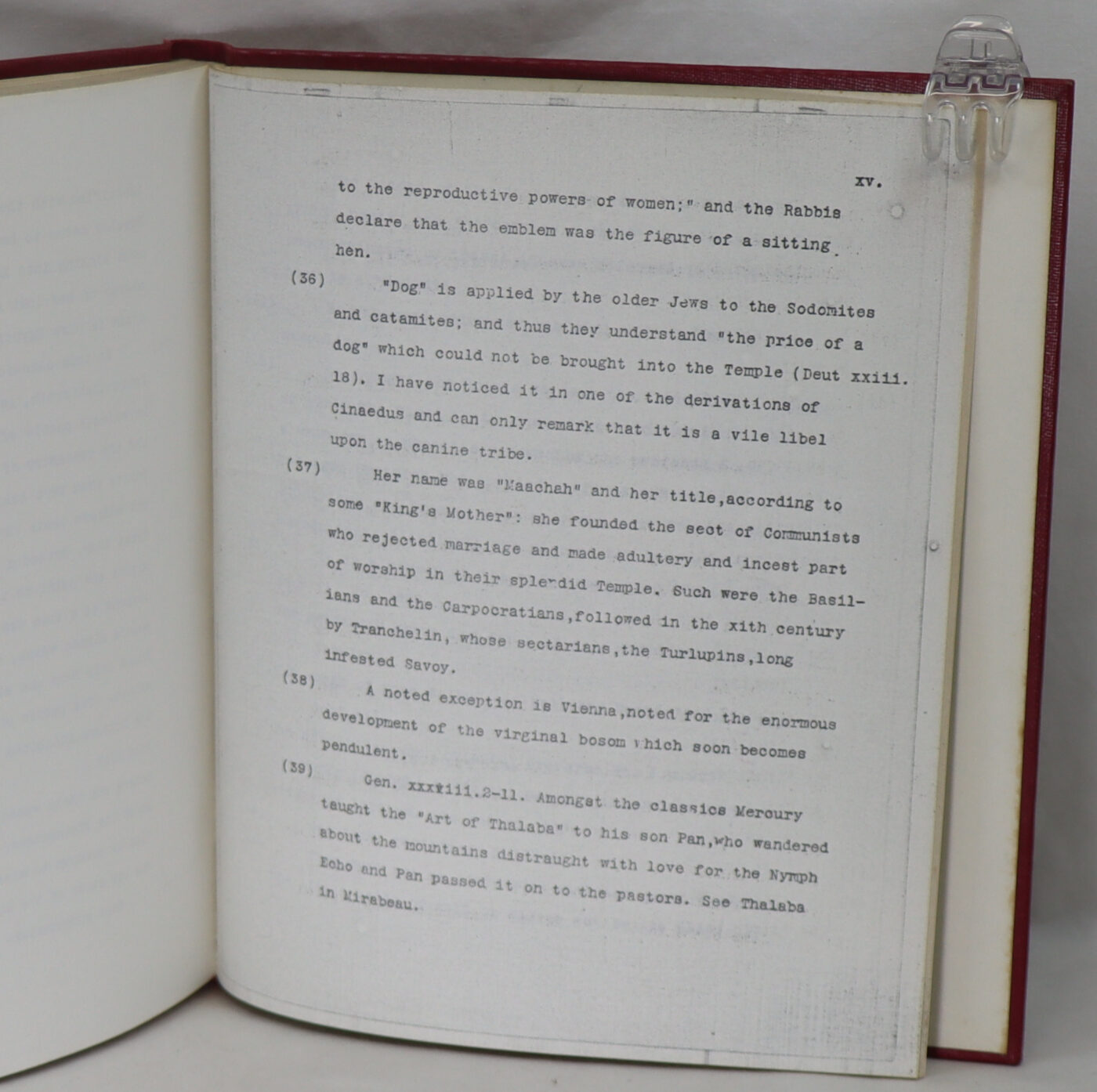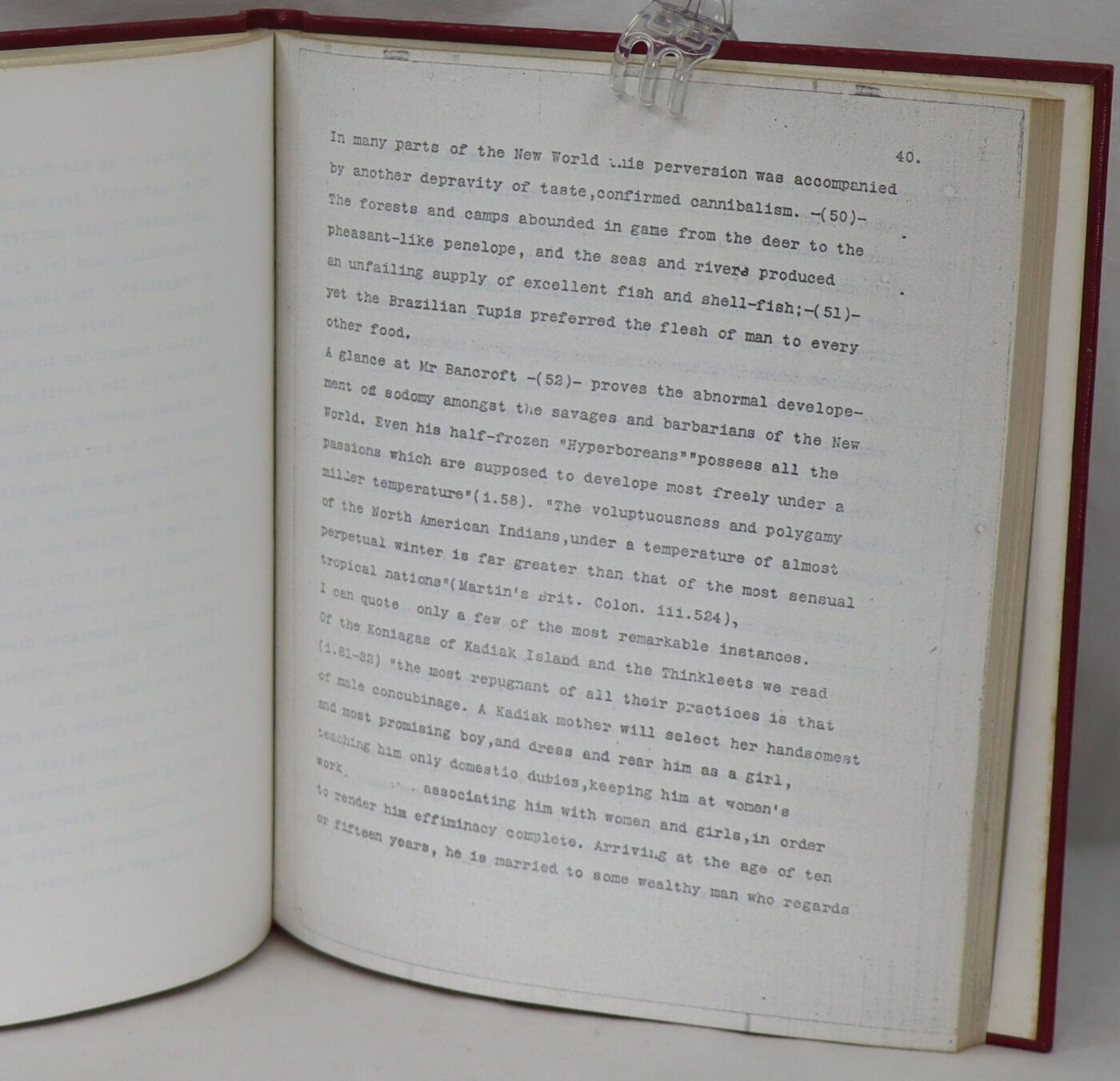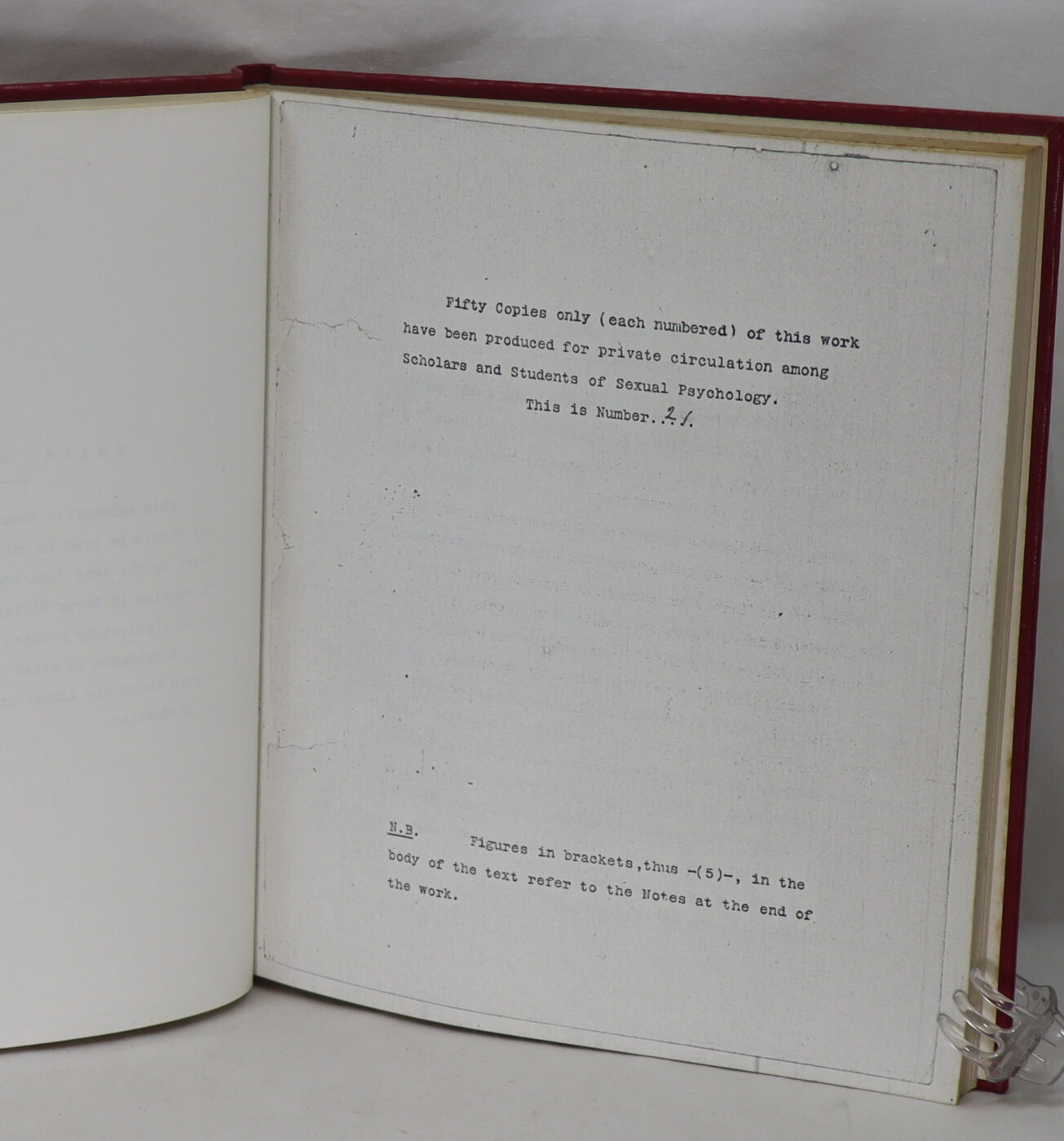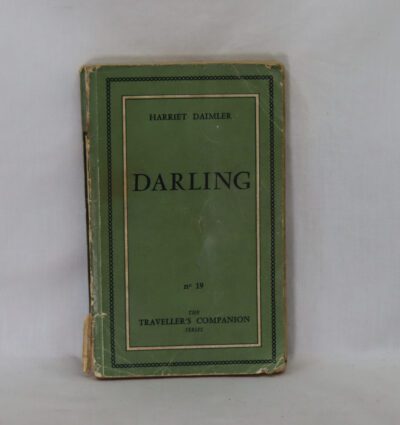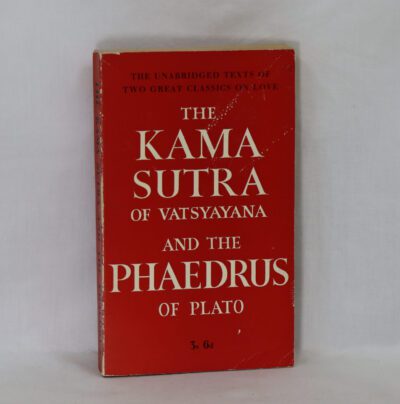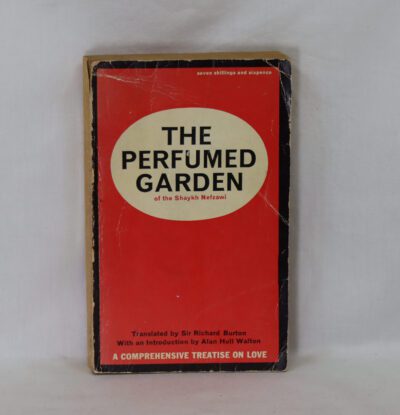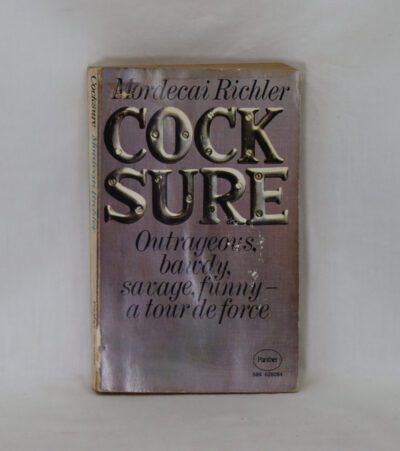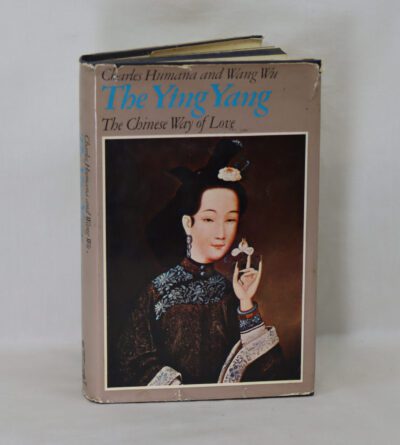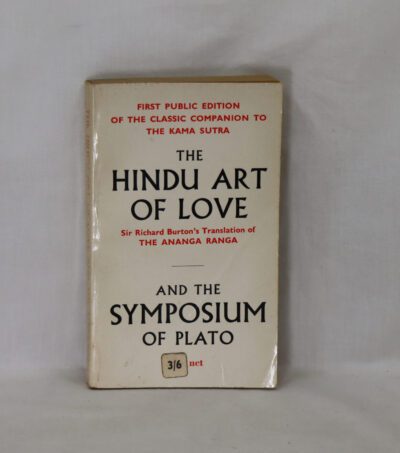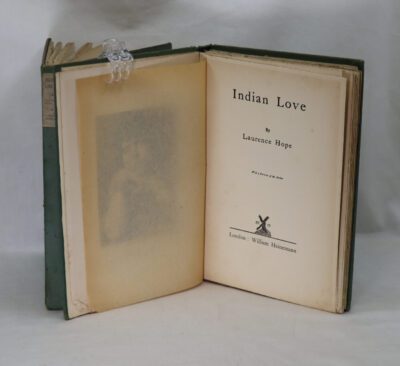Terminal Essay.
By Sir Richard F Burton
Printed: 1901
Publisher: Privately printed. London
Edition: Limited edition of 50
| Dimensions | 22 × 26 × 1 cm |
|---|---|
| Language |
Language: English
Size (cminches): 22 x 26 x 1
Condition: Very good (See explanation of ratings)
FREE shipping
Your items
Item information
Description
Hardback. Maroon cloth binding with gilt title on the spine. No 21 of Limited edition of 50.
We provide an in-depth photographic presentation of this item to stimulate your feeling and touch. More traditional book descriptions are immediately available
- Note: This book carries a £5.00 discount to those that subscribe to the F.B.A. mailing list
Warning: This book was part of the erotic library gathered by the famous Cambridge Don, computer scientist, food and wine connoisseur, and member of the London Athenaeum Club, Jack Arnold LANG, who along with medical friends and family was involved in Freudian research. Sexual instincts or drives have deeply hidden roots in the unconscious mind. Instincts act by giving vitality and enthusiasm to the mind through meaning and purpose. The range of instincts is in great numbers. Freud expressed them in two categories. One is Eros, the self-preserving life instinct containing all erotic pleasures. While Eros is used for basic survival, the living instinct alone cannot explain all behavior, according to Freud. In contrast, Thanatos is the death instinct. It is full of self-destruction of sexual energy and our unconscious desire to die. The main part of human behavior and actions is tied back to sexual drives. Since birth, the existence of sexual drives can be recognized as one of the most important incentives of life. The enclosed book was part of this research. A photograph is enclosed, should you seek further details please contact Martin Frost on martin.frost@gmail.com
Foremost amongst erotic books collected by Jack Arnold Lang are those published by Sir Richard Francis Burton, KCMG, FRGS, (19 March 1821 – 20 October 1890). Burton’s best-known achievements include undertaking the Hajj to Mecca in disguise, translating One Thousand and One Nights and The Perfumed Garden, and publishing the Kama Sutra in English. Burton had long had an interest in sexuality and some erotic literature. However, the Obscene Publications Act 1857 had resulted in many jail sentences for publishers, with prosecutions being brought by the Society for the Suppression of Vice. Burton referred to the society and those who shared its views as Mrs Grundy. A way around this was the private circulation of books among the members of a society. For this reason Burton, together with Forster Fitzgerald Arbuthnot, created the Kama Shastra Society to print and circulate books that would be illegal to publish in public. One of Burton’s most celebrated of all his books is his translation of The Book of the Thousand Nights and a Night (commonly called The Arabian Nights in English after early translations of Antoine Galland’s French version) in ten volumes (1885), with seven further volumes being added later. The volumes were printed by the Kama Shastra Society in a subscribers-only edition of one thousand with a guarantee that there would never be a larger printing of the books in this form. The stories collected were often sexual in content and were considered pornography at the time of publication. In particular, the Terminal Essay in volume 10 of the Nights contained a 14,000-word essay entitled “Pederasty” (Volume 10, section IV, D), at the time a synonym for homosexuality (as it still is, in modern French). This was and remained for many years the longest and most explicit discussion of homosexuality in any language. Burton speculated that male homosexuality was prevalent in an area of the southern latitudes named by him the “Sotadic zone”. Burton theorized about the existence of a “Sotadic zone” in the closing essay of his English translation of The Arabian Nights (1885–1886). He asserted that there exists a geographic-climatic zone in which sodomy and pederasty (sexual intimacy between older men and young pubescent/adolescent boys) are endemic, prevalent, and celebrated among the indigenous inhabitants and within their cultures. The name derives from Sotades, a 3rd-century BC Ancient Greek poet who was the chief representative of a group of Ancient Greek writers of obscene, and sometimes pederastic, satirical poetry; these homoerotic verses are preserved in the Greek Anthology, a collection of poems spanning the Classical and Byzantine periods of Greek literature.
This very rare, separate and distinct copy is numbered 21 out of 50, being refreshed for Athenian Club members in 1901. Some shelfwear, but near fine. Burton concludes the publication as below:
‘‘That the work contains errors, shortcomings and many a lapsus, I am the first and foremost to declare. Yet in justice to myself I must also notice that the maculae are few and far between; even the most unfriendly and interested critics have failed to point out an abnormal number of slips. And before pronouncing the “Vos plaudite!” or, as Easterns more politely say, “I implore that my poor name may be raised aloft on the tongue of praise,” let me invoke the fair field and courteous favour which the Persian poet expected from his readers.
(Veil it, an fault thou find, nor jibe nor jeer:–
None may be found of faults and failings clear!)’
RICHARD F. BURTON.
Athenaeum Club, September 30, ’86.’
Sir Richard Francis Burton, KCMG, FRGS, (19 March 1821 – 20 October 1890). was a British explorer, army officer, writer and scholar. He was famed for his travels and explorations in Asia, Africa and South America, as well as his extensive knowledge of languages and cultures, speaking up to 29 different languages.
Born in Torquay, Devon, Burton joined the Bombay Army as an officer in 1842, beginning an eighteen-year military career which included a brief stint in the Crimean War. He was subsequently engaged by the Royal Geographical Society (RGS) to explore the East African coast, where Burton along with John Hanning Speke led an expedition to discover the source of the Nile and became the first European known to have seen Lake Tanganyika. He later served as the British consul in Fernando Pó, Santos, Damascus and Trieste. Burton was also a Fellow of the RGS and was awarded a knighthood in 1886.
His best-known achievements include undertaking the Hajj to Mecca in disguise, translating One Thousand and One Nights and The Perfumed Garden, and publishing the Kama Sutra in English. Although he abandoned his university studies, Burton became a prolific and erudite author and wrote numerous books and academic articles on subjects such as human behaviour, travel, falconry, fencing, sexual practices and ethnography.
Want to know more about this item?
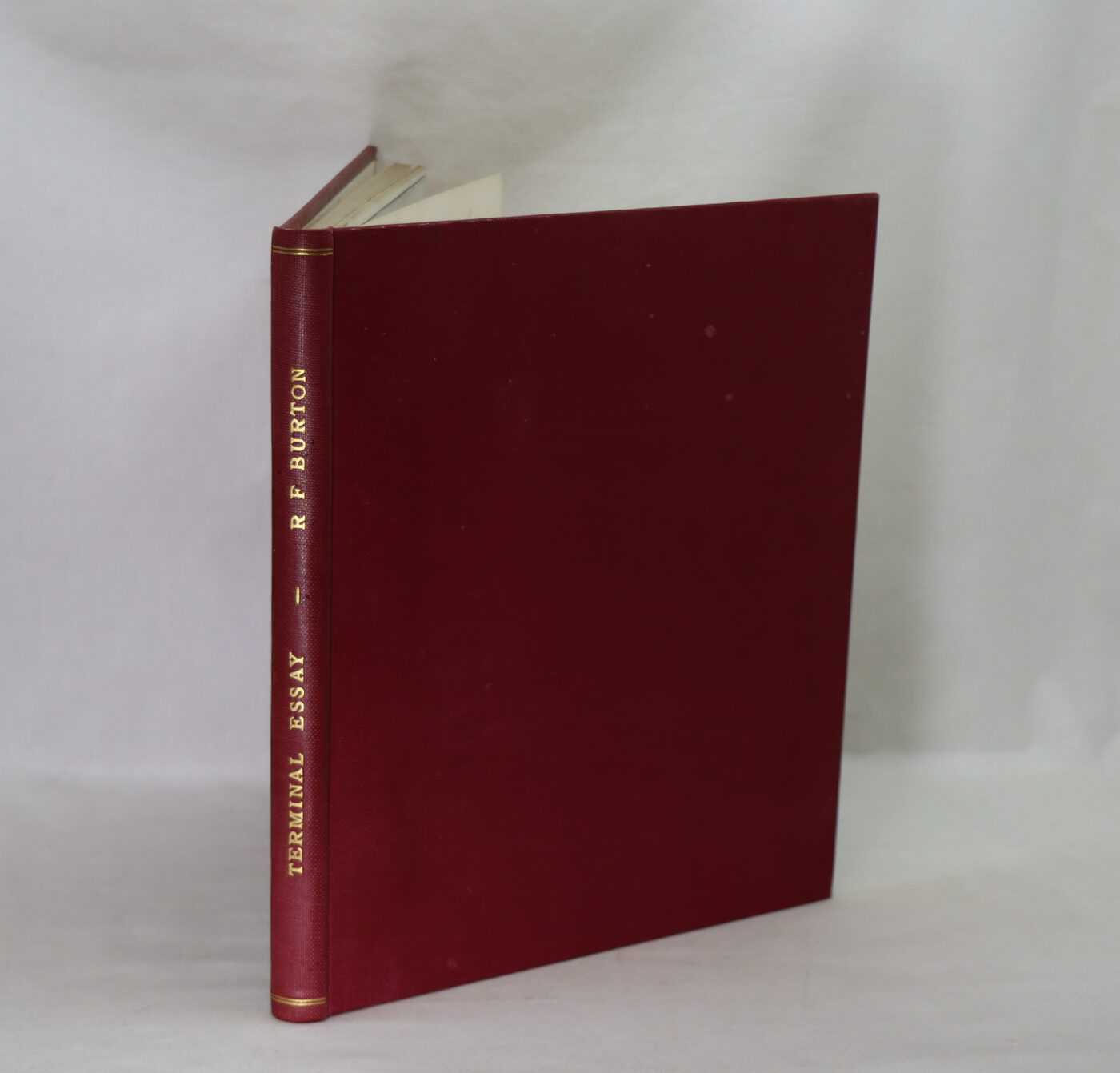
Related products
Share this Page with a friend

